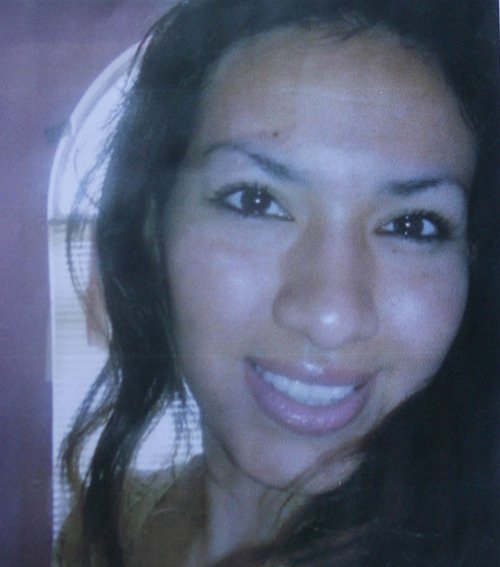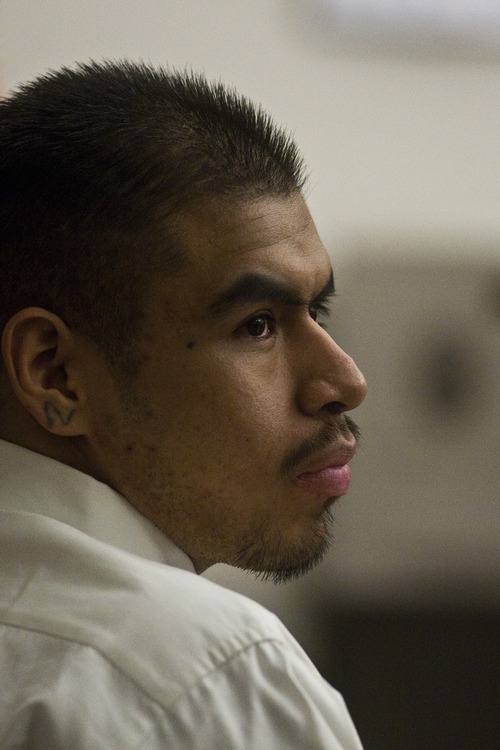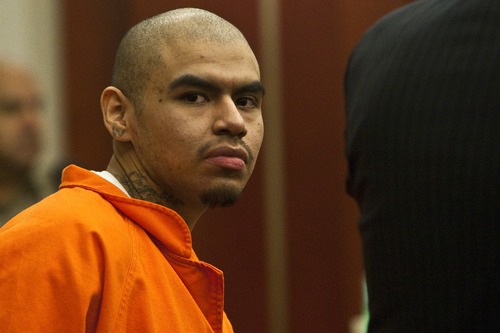This is an archived article that was published on sltrib.com in 2013, and information in the article may be outdated. It is provided only for personal research purposes and may not be reprinted.
With the simple words "we affirm," the Utah Supreme Court Friday ended a convicted murderer's attempt to get out of prison sometime before he dies.
Those words bookend a 12-page decision that denies Miguel Mateos-Martinez's appeals of his aggravated murder conviction, which in this case carried a sentence of life in prison without parole. The case began in 2007 when Mateos-Martinez, now 25, was just 19 years old and gunned down 24-year-old Faviola Hernandez at a Salt Lake City hair salon.
In February 2011, a jury threw the book at Mateos-Martinez, handing down convictions for one count of aggravated murder, two counts of aggravated robbery and two counts of aggravated assault. Two months later a judge ordered Mateos-Martinez to spent the rest of his life behind bars.
Assistant Attorney General Marian Decker, who fought Mateos-Martinez's appeal, called the supreme court's ruling a victory.
"This was a tragic, tragic murder and it's satisfying to see justice done," Decker said. "Hopefully the family can get some closure."
Mateos-Martinez's attorney did not immediately return phone calls Friday.
The case stems from a botched hair salon robbery. According to police, Mateos-Martinez walked into Hernandez's Glendale area salon, brandished a pistol and ordered everyone to drop to the floor. Court documents say Mateos-Martinez then told Hernandez to go to a back room and retrieve money.
But when Hernandez returned with her own gun, Mateos-Martinez shot her once in the chest and fled. Hernandez died within minutes.
Mateos-Martinez later escaped to Mexico before being captured and extradited back to the U.S. The terms of his extradition prevented prosecutors from pursuing the death penalty in the case.
During Mateos-Martinez's sentencing, the judge described the crime as "marked by depravity" because it happened in front of the victim's younger brother and sister, who were 7 and 12 years old. The judge also criticized Mateos-Martinez's apology as hollow, saying it was "too little, too late."
Mateos-Martinez's attorney, Samuel Newton, argued on appeal that he should have faced a lesser murder charge, rather than aggravated murder. He claimed that the more severe charge violated his constitutional rights and gave prosecutors "unbridled discretion to make charging decisions." He also argued that other people in Mateos-Martinez's situation had faced lesser charges.
In support of that claim,Newton provided a list of other defendants in allegedly similar situations who faced aggravated robbery charges as well as mere murder charges.
However, in Friday's decision, the supreme court says Mateos-Martinez's list includes insufficient information to support his claims. The decision also notes that one of the people on his list was his own getaway driver, who faced different charges due to lesser involvement in the crime.
Mateos-Martinez also argued that Hernandez's mother and sister shouldn't have been allowed to deliver victim impact statements at his sentencing. And because his trial attorney didn't object when the statements were made, Newton went on to argue, they erred and were ineffective.
The court disagreed, saying that the statements did not violate Mateos-Martinez's rights.
Decker added Friday that it is common practice in non-capital cases for victim impact statements to be read. She also said that while Mateos-Martinez could theoretically appeal the case to the U.S. Supreme Court, Friday's decision probably means that the case is over.
"This is effectively the end of the line," she said.
Twitter: @jimmycdii







